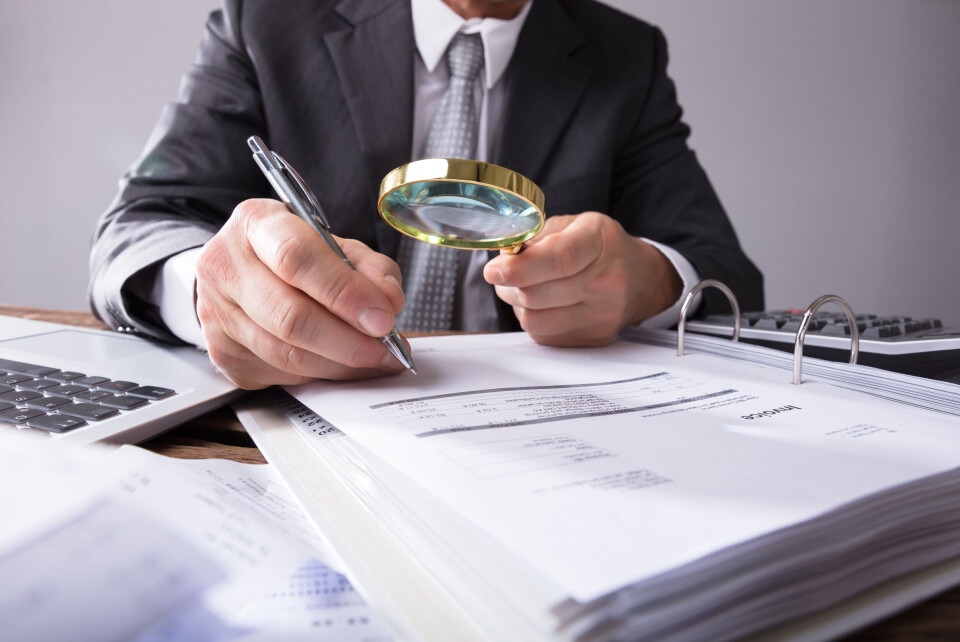-
Your neighbour can legally check (part of) your tax assessment in France
There are strict conditions that must be met, however
-
Commission votes to raise French income tax bands in boost for taxpayers
Measure still faces opposition
-
French tax payment due for nine million households. Will you get it?
Payouts average €600 and will soon be made directly to registered bank accounts
How do tax inspections work in France, are foreigners more at risk?
We look at the types of inspections that occur, the time-limits involved and what can trigger a check

Reader question: How do tax inspections on members of the public happen in France? Are non-French citizens more likely to be picked?
Tax inspections (contrôles fiscaux) on members of the public do happen in France from time to time but they are less common than checks on businesses and there are rules as to how far back they can go.
As a general rule tax checks only go back three years.
Two types of tax inspection
There are two main types of tax inspections: a contrôle sur pièces (check based on documents) and a more thorough process called an examen contradictoire de la situation fiscale personnelle (ESFP).
The former is the more common and consists of tax officials taking a close look at information they hold on file for you, looking for errors and omissions and checking that your income levels seem coherent and tax documents were submitted on time.
Such checks would cover income declarations, information they hold on your property ownership or financial investments, existing correspondence and data on previous checks and rectification demands.
Often, taxpayers are not informed that such a check is being carried out (there is no obligation for inspectors to inform people) and the file is closed if no issues are found.
However, in some cases, officials may ask for extra paperwork, such as evidence of expenses for which you claimed a tax reduction. If this is the case, the taxpayer will be informed of the outcome within a period specified in the request and, if they do not hear anything, they can assume that the file has been closed.
Usually in a contrôle sur pièces there is no meeting between tax officials and the taxpayer. If issues are found, officials will typically send a written explanation of their findings with proposals for rectifications, which the taxpayer will have the right to contest, if they so wish.
If errors or omissions have resulted in less tax being paid than was due a person will have to pay the extra and there can be fines of 10% on top of this (or up to 80% in cases where deliberate fraud is believed to have occurred). Interest can also be applied to the tax paid ‘late’, at 2.4%/year pro rata for the time which has passed.
The principle of the ‘right to be wrong’
In general, however, there is a principle of the ‘right to error’, by which tax offices will aim not to be heavy-handed in the case of one-off genuine mistakes, though interest may still be due.
An ESFP is not common and is held in person, usually at the tax office but sometimes in a taxpayer’s home.
The examination notably checks for irregularities between income declared and a person's financial situation and lifestyle.
People who are going to be inspected via an ESFP are usually notified that the procedure will be taking place and told which years are going to be checked. They are also notified of the possibility of obtaining professional help, such as from a tax lawyer.
Usually ESFP checks will not continue for more than a year from the date of notification though this can be increased to two years under certain circumstances, such as where undisclosed work income has been found.
Non-citizens are not more likely to be assessed
One factor making it more likely you will be checked is simply being wealthy: people with large incomes are liable to be subject to checks from time to time.
Tax inspections are also known to be triggered sometimes because the tax office has become aware of a clash between a conspicuously lavish lifestyle and the incomes declared; this could happen, for example, due to them looking at public posts on social media.
In other cases, those to be checked are selected using tools that aim to identify factors that may make a person more at risk of problems with their tax affairs.
Tax offices do not disclose the exact criteria they use but there is no reason to assume that nationality is one of them.
Having said this, it is thought that factors to watch out for if you want to avoid checks could include certain issues more likely to affect non-citizens, such as not declaring the existence of overseas bank accounts.
Other red flags for checks are said to include sudden large changes in income, frequent late tax declarations or exaggerated expense claims.
You can find further information on activities that may make you more liable to a tax inspection in this article.
Related articles
Six ways to reduce your French inheritance tax
‘Inheritance taxes are a minefield to be navigated in France and UK’
























